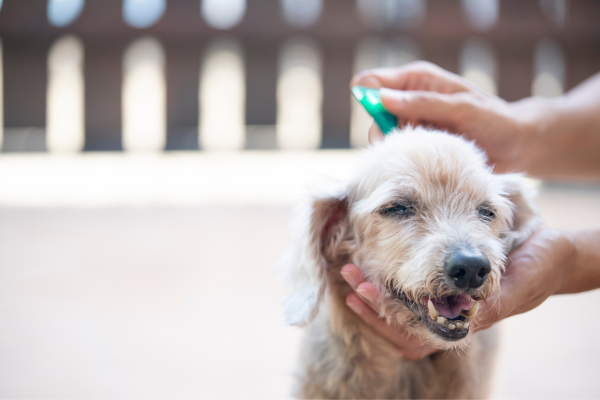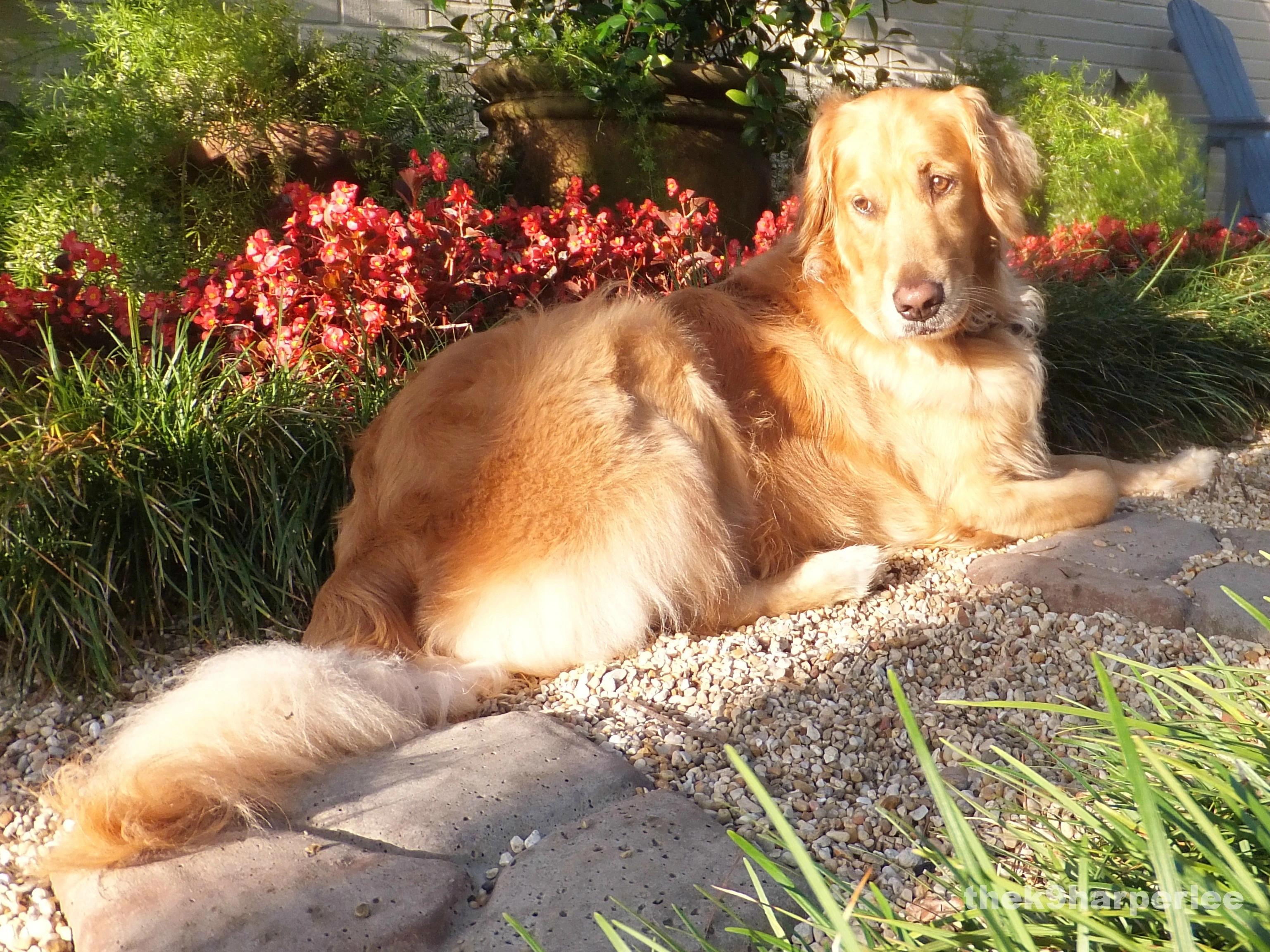Dog's Belly Having Brown Spots? Here's What You Need to Know
Dog's Belly Having Brown Spots? Here's What You Need to Know

Vet Reviewed

By: Sarah Hodgson
May 26, 2023
Table of Contents
Have you ever noticed those odd-looking brown spots on your dog's belly and wondered what they are? Well, not to worry! In this article, I'll answer everything you need to know about these brown spots on dogs and the significance of those peculiar brown spots.
What Are Those Brown Spots on a Dog's Belly
It's difficult to say as without a proper look they can mean one of many things. There are four major causes and we'll dive deep into each one of them below.
Hyperpigmentation
Before you get worried brown spots on a dog's belly are often caused by changes in the skin's pigmentation called hyperpigmentation and usually cause no harm.
Hyperpigmentation is the darkening or thickening of a dog's skin. It is a reaction to the other conditions affecting a dog's skin.
Hypothyroidism
This is a large and scary-looking word. However, the meaning is quite simple.
Hypothyroidism is a metabolic disorder where a dog's thyroid glands don't release enough thyroid hormone, leading to a slower metabolism.
Sun Exposure and Aging
Just like we age dogs age as well. As they age their skin becomes less thick and more exposed to the sun.
Some dogs may develop brown spots on their skin after being exposed to sunlight, just like us humans. These spots will most likely appear in lightly-haired areas, such as the belly, nose, or ears.
These spots are caused because of a buildup of melanin which is what causes pigmentation.

Natural Freckles
I told you not to get worried, it could just be freckles that you've never seen before.
Dogs with multi-colored hair coats usually have multi-colored skin as well. These natural dark spots are simply natural freckles that may be present throughout your dog's life.
Diagnoses and Treatment For Brown Spots
Diagnoses:
It's best to talk to your vet when you start seeing these brown spots as there can be so many causes your veterinarian will likely know what is causing the issue. They will likely use a combination of skin scrapings, needles, or biopsies to determine the cause of the brown spots.
When it comes to these spots they are usually harmless and no further diagnoses would be required.
Treatment:
Based on the diagnosis, your vet gave. They will give their opinion on the best treatments. Most likely nothing will need to be treated as it is likely the cause of pigmentation or aging.
However, if it is not treatment options may include medications (antibiotics, antifungals, parasiticides), surgical removal, or lifelong management of those conditions.
When Brown Spots on a Dog's Belly Are Less of a Concern
Brown spots on your dog's belly can sometimes be harmless and a natural part of your dog's aging process. If your dog recently started new medication or if you've noticed a gradual increase in dark spots as they got older, these spots are likely not a cause for concern.
Pigmentation can also play a role and also usually is harmless as well.
When Brown Spots on a Dog's Belly Are a Reason for Concern
If you notice a new brown spot on your dog that doesn't seem to bother them, you may choose to watch and monitor it for a few weeks. However, if the spot grows or changes in shape, texture, or color, or if your dog is bothered by it, it's essential to see your veterinarian.
Aging or pigmentation usually doesn't expand in shape and color. If this is the case it's best to visit your vet just to make sure everything is all right.
Brown spots on your dog's belly may be a cause for concern or simply a natural part of their aging process/pigmentation which is harmless. If the spots are changing color or shape consult your vet.
The Bottom Line
Brown spots on your dog's belly may be a cause for concern or simply a natural part of their aging process/pigmentation. Monitor your dog's skin for any changes and consult a veterinarian if you're worried.
Remember, always consult with your vet for health decisions and keep an eye on your dog's skin for any changes. Any spot that is changing should be checked right away. Till next time.

Subscribe to Petfluence!
Get updates on the latest posts and more from Petfluence straight to your inbox.